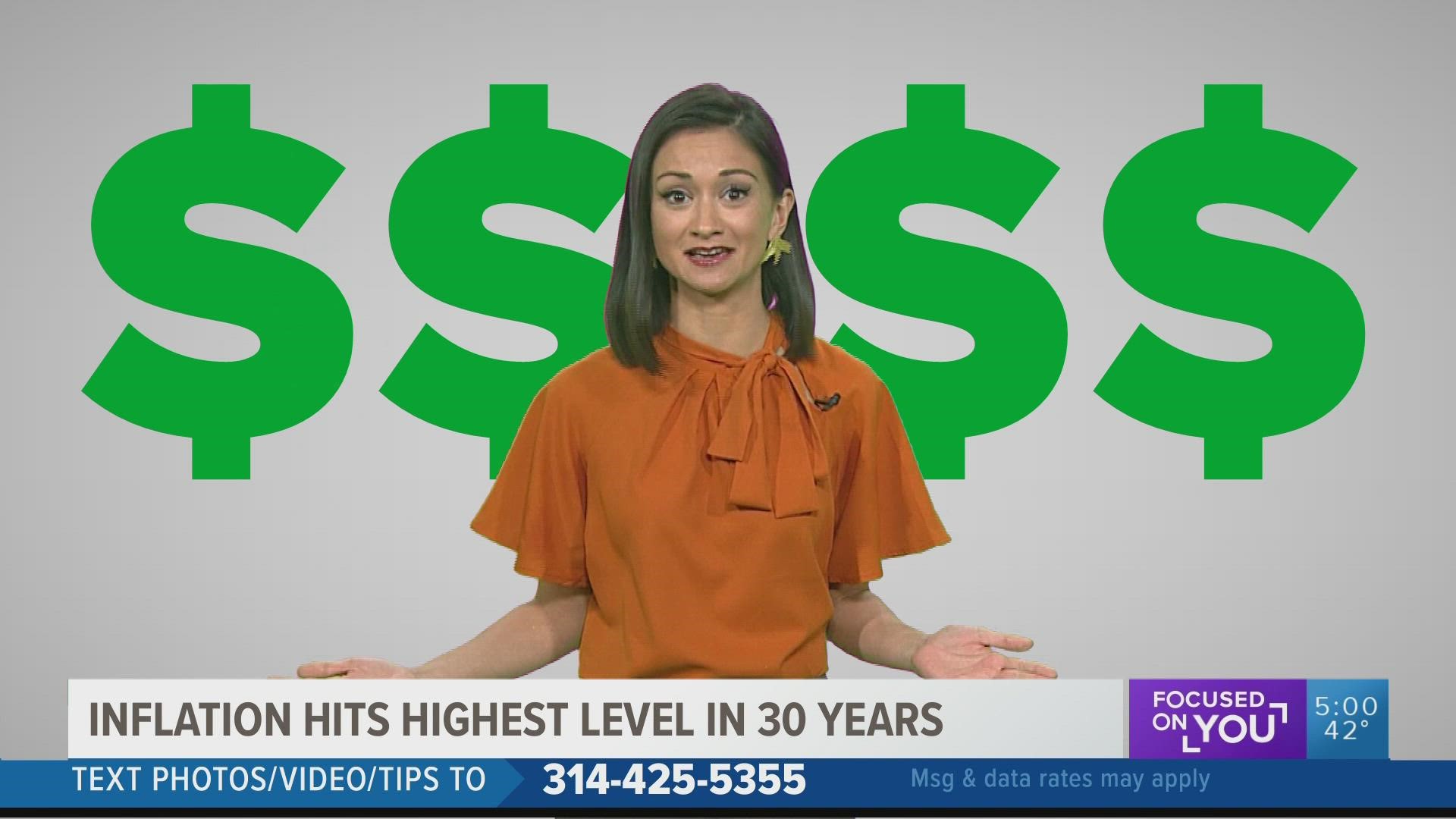ST. LOUIS — It seems like no matter how hard you price shop, 2021 is just expensive.
That's why you'll hear a lot about inflation, the economic term for when prices go up and the value of money goes down.
Remember when that $2.50 bottle of soda used to go for a nickel? Inflation over time is a natural part of the economy -- but what we're seeing right now is inflation over a short period of time. In fact, we are experiencing the highest year-to-year spike in more than 30 years. Prices for consumers jumped 6.2% percent in October 2021, compared to October 2020.
“It's more money chasing too few goods,” said Bill Vogt, an economics teacher at Parkway North High School. "When we have a greater demand than there is, a supply of those goods is going to drive the prices up as people want to buy those goods."
More money, he says, because many people spent less upon COVID-19's arrival, and in some cases, were able to save. Too few goods because of the supply chain disruptions brought on by the pandemic.
“We see a backlog in ports. We face transportation distribution problems around the globe, but also within the country itself as we face a shortage of labor and increased transportation costs,” Vogt said. “Those things are all contributing to almost a perfect storm of things to coincide and bring us this extraordinary inflation rate.”
When every dollar is worth a little less, you need more of them to equal the value of the thing you want to buy. Time to ask the boss for a 6.2% raise if you want to keep up with prices. But for most people, this means a budget that just doesn't go as far as it did this time last year.
So when will our pocketbooks feel some relief?
“That’s the million-dollar or billion-dollar question that you know, economists are trying to predict,” said Vogt. “Is this going to be just simply a temporary bump as they had expected it to be? Or is this going to be a longer term disruption?”
The other big question: what can be done about it? Some economists say waiting it out is best, and things will get better as the pandemic ends. The government can also raise interest rates, or adjust and reduce its spending. The Biden administration is currently pushing more urgent spending at the nation's ports to try to help with supply issues there, which could be especially strained ahead of the holidays.

